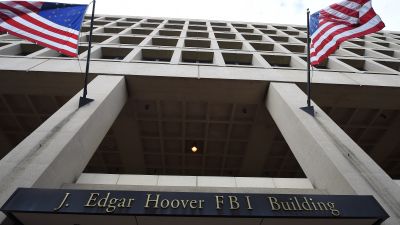The city of Chicago sued the US Justice Department this week for threatening to deny them public safety grants if they refuse to work closely with federal immigration enforcement. Instead of waiting for court decisions, however, Gabe Gonzalez and a group of neighbors in Chicago took matters into their own hands.
Gonzalez worries about his undocumented friends in the diverse Rogers Park neighborhood of Chicago. Even those with legal status, are living in an increasing state of fear. “I hate bullies — I just hate them.” Gonzalez, says. “The thought that men with guns are going to come in these people’s houses and take them away — you’ve got to do something.”
Gonzalez is a professional community organizer. He and his wife have experience advocating for workers, women, immigrants and refugees. But neither of them had ever launched an organization of their own — until last February. They created an event page on Facebook and called for concerned people in Rogers Park to join them for a meeting at a neighborhood church. To their surprise, 500 people showed up eager to “do something” too. Their grassroots organization, Protect RP, was born.
The goal of Protect RP is to train volunteers in direct action techniques to defend people in their neighborhood from deportation. A team of volunteers developed a curriculum and, as shown in this video, they are now teaching people how to mobilize and confront ICE agents. The group has already trained more than 100 volunteers on how to respond when someone calls the hotline.
The “rapid response” to a suspected raid unfolds immediately. Trained verifiers are the first on the scene, to document the action and confirm that the raid is real. Two volunteers developed a cellphone app that then serves as a “panic button.” When it is triggered, it sends texts to alert people that a raid has begun. Undocumented residents know to stay clear, and activists know to gather at the scene. Protect RP doesn’t want to people to get arrested, says Gonzalez, “but we are using every tactic we have at our disposal to slow ICE down.” The group has studied ICE and determined that they have a tight schedule. The goal is to ruin that timetable. Gonzalez is already sharing their training materials with organizations in Chicago and is happy to distribute them elsewhere.




